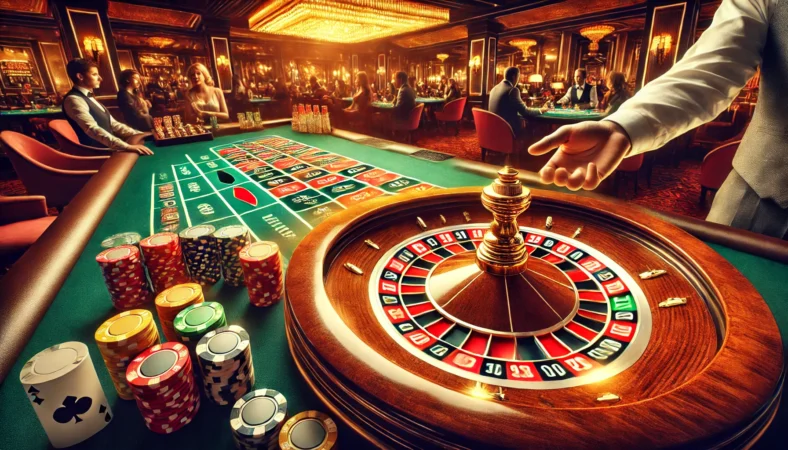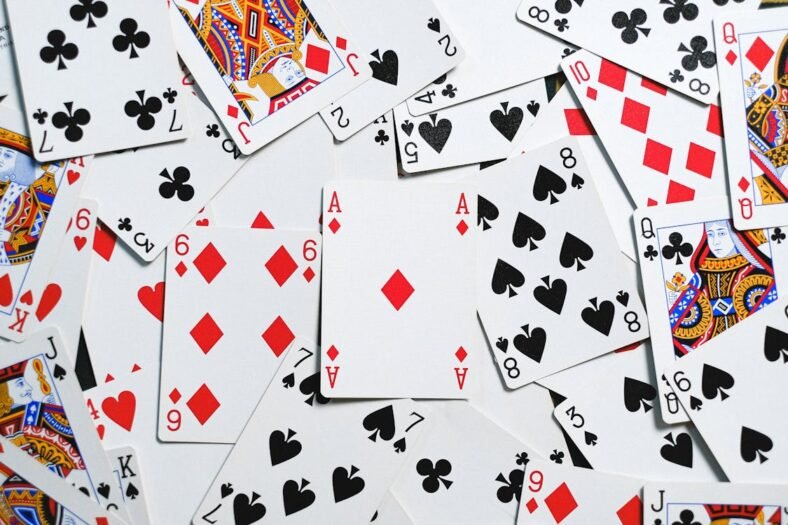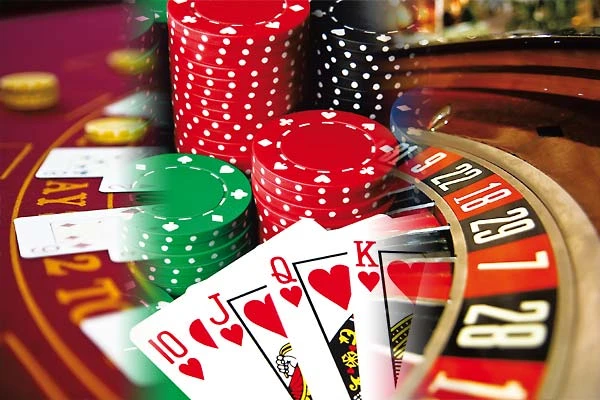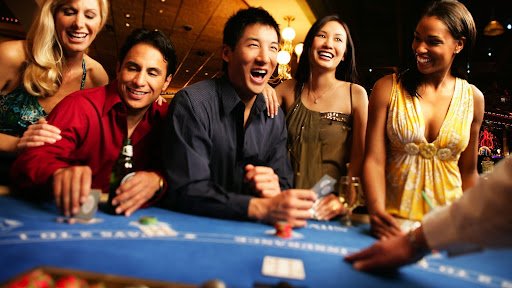The Best Roulette Games on Mobile – Roulette, the iconic casino game known for its spinning wheel and thrilling betting options, has long been a favorite among gamblers worldwide. With the rise of mobile gaming, roulette enthusiasts can now experience the excitement of the casino from the comfort of their own devices, whether they’re on the go or relaxing at home.
Mobile roulette games have evolved to offer a range of experiences, from authentic casino-style play to innovative variations with modern twists. With smooth graphics, intuitive controls, and the convenience of playing anywhere, it’s no surprise that roulette remains one of the most popular mobile casino games.
In this article, we’ll explore some of the best roulette games available on mobile, highlighting what makes them stand out in a crowded field of casino apps.
The Best Roulette Games on Mobile
1. Roulette Royale
Roulette Royale is a standout mobile roulette game that brings a touch of class to the mobile gaming scene. Available on both Android and iOS, this game features a beautiful, high-quality interface that mimics the look and feel of a real casino. Players can choose between European and American roulette, each offering its own set of challenges and strategic opportunities. One of the key highlights of Roulette Royale is its multiplayer mode, which allows you to compete against players from around the world in real-time. The app also includes various betting options, including inside and outside bets, giving you plenty of room to test your roulette strategy. Additionally, Roulette Royale includes daily challenges and bonuses, offering a fun way to earn rewards as you play. For those looking for an immersive roulette experience with a social aspect, Roulette Royale is a top choice.
2. European Roulette by Spin Palace Casino
European Roulette by Spin Palace Casino is one of the most polished and realistic roulette games available on mobile. Available on both Android and iOS, this app focuses on delivering an authentic casino experience with crisp graphics and a smooth, user-friendly interface. The game offers a single-zero European wheel, which has better odds compared to the double-zero American version. Players can enjoy a range of betting options, from simple bets like red or black to more complex wagers such as inside bets, columns, and dozens. The app also includes a detailed betting guide and tutorial for beginners, making it easy to understand the mechanics of the game. European Roulette by Spin Palace is a great choice for players who enjoy a traditional, straightforward roulette experience, with the added benefit of a reputable casino brand behind it.
3. Lucky Roulette
Lucky Roulette is a fun, free-to-play mobile roulette game that offers an exciting twist on the traditional game. Available for both Android and iOS, Lucky Roulette gives players a chance to play roulette in a more casual, fun environment. The game features a classic European roulette wheel, with smooth animations and a user-friendly interface. What sets Lucky Roulette apart is its unique “Lucky Wheel” feature, where players can earn additional bonuses and multipliers during gameplay. This feature adds an extra layer of excitement, as you never know when you’ll hit a lucky spin that boosts your winnings. While the game is primarily focused on casual play, it still offers a range of betting options for players who want to test their strategy. For those looking for a light-hearted yet engaging roulette experience, Lucky Roulette is a solid option.
4. Roulette Casino: Free Roulette Game
If you’re looking for a simple and enjoyable mobile roulette experience, Roulette Casino: Free Roulette Game is a great choice. Available on Android and iOS, this app offers a free-to-play roulette game with high-quality graphics and smooth gameplay. The game features both European and American roulette, with realistic animations of the roulette wheel and betting options. The app allows you to place various types of bets, including inside, outside, and even racetrack bets, providing plenty of variety for both beginners and more experienced players. The free-to-play model makes it accessible to anyone, with no real-money stakes involved, so it’s ideal for practicing your roulette skills or just enjoying a quick game without any pressure. Roulette Casino is perfect for players who want a straightforward and relaxing roulette game without the complexity or commitment of real-money gambling.
5. Roulette Master
For players who enjoy mastering new games and strategies, Roulette Master offers an excellent platform. Available for both Android and iOS, Roulette Master delivers a realistic and immersive roulette experience, featuring multiple roulette variations, including European, American, and French roulette. What sets Roulette Master apart is its emphasis on player progression—offering a system where you can unlock new features and customization options as you level up. Players can also enjoy daily challenges, bonuses, and tournaments, adding an element of competition and goal-setting to the game. Whether you’re a beginner or an experienced player, Roulette Master gives you the tools to improve your game and become a roulette expert.
6. Casino Roulette – Real Casino
For those who want a true casino experience on their mobile devices, Casino Roulette – Real Casino brings the full casino atmosphere to your screen. Available on Android, this game offers a highly realistic roulette experience with excellent graphics, sound effects, and smooth animation. The game features a single-zero European roulette wheel, and players can place a wide range of bets. One standout feature is the app’s live dealer mode, which lets you play against a real dealer in real time, enhancing the authenticity of the experience. Whether you’re playing against AI or engaging in live play, Casino Roulette – Real Casino gives you a top-tier roulette experience on mobile.
The best mobile roulette games combine realistic gameplay, engaging features, and user-friendly interfaces, allowing players to enjoy the thrills of the casino wherever they are. From Roulette Royale’s multiplayer tournaments to Spin Palace Casino’s authentic European roulette wheel, there are plenty of options to choose from, each offering something unique for roulette enthusiasts. Whether you’re a beginner or an experienced player, mobile roulette games provide a fun and convenient way to enjoy this classic casino game. With a range of betting options, exciting features, and smooth gameplay, these apps will keep you entertained while giving you the chance to sharpen your roulette skills.








